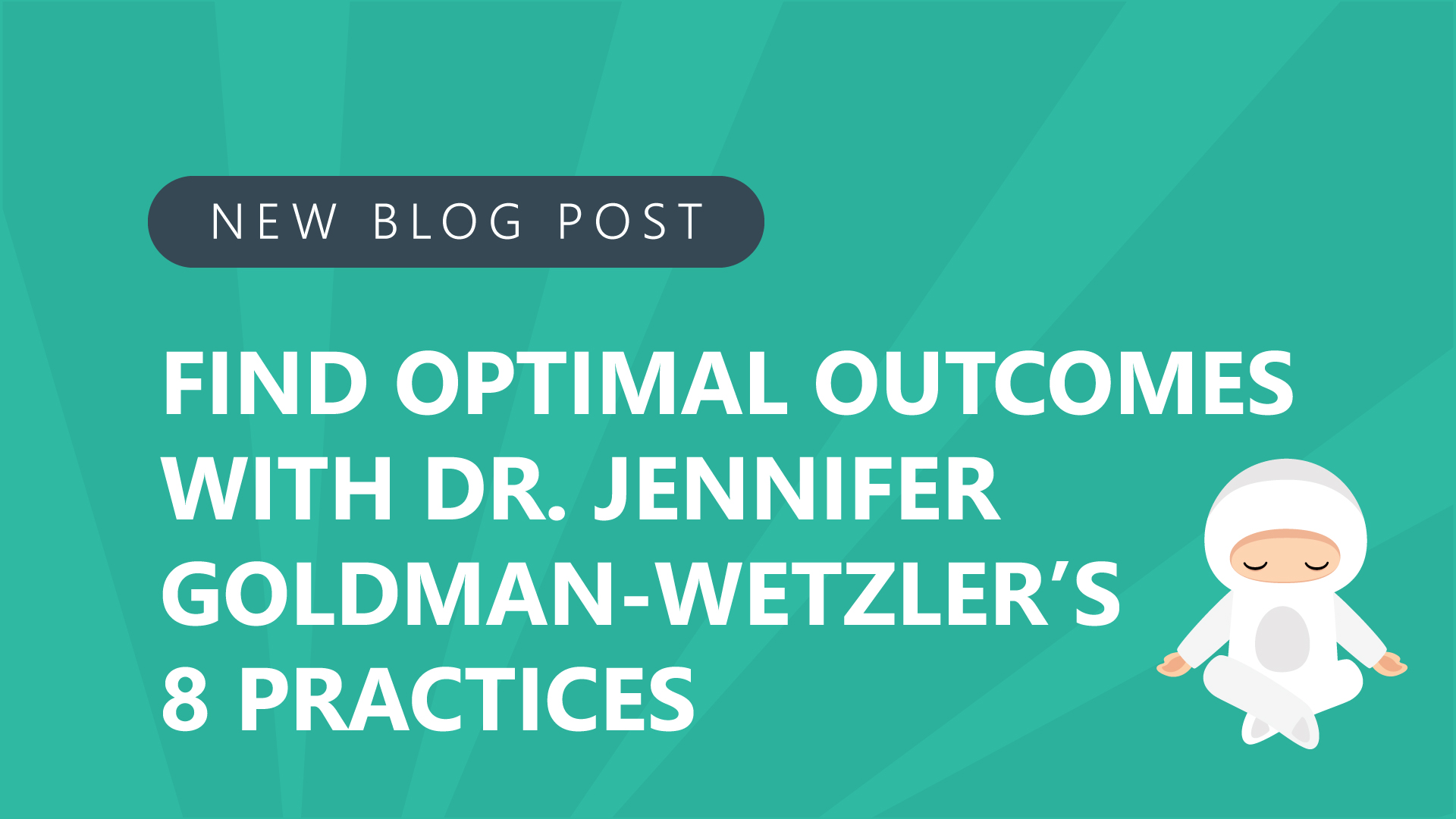When you find yourself immersed in conflict, there are 8 practices you can fall back on to reach optimal outcomes. Dr. Jennifer Goldman-Wetzler’s 8 Practices are based on years of experience and teaching these practices into her latest book: Optimal Outcomes: Free Yourself from Conflict at Work, at Home, and in Life. In episode 142 of the Negotiations Ninja podcast, she gave a sneak-peak into those 8 practices that will forever change how you deal with conflict.
Practice #1: Notice your conflict habit and pattern
Jennifer notes that you can’t break free from a pattern until you know what it is. Are you a blame-blame pattern? Do you shut down and avoid conflict completely? Jennifer shares a FREE assessment you can take to find out your conflict pattern. It makes it far easier to resolve conflict when you start with self-awareness of your own behaviors.
Practice #2: Increase clarity and complexity
We tend to see situations in black and white terms when it’s not usually the case. When the situation is recurring, it’s typically complex. Jennifer notes that mapping out what influences a conflict can help you see it in a different light and bring clarity to a complex situation.
Practice #3: Make your emotions work for you
Are you able to use emotions to work in your favor? Do you know how to use your anger as a catalyst for constructive change? When something isn’t fair, right or just—how do you take constructive action? Jennifer notes that people like Martin Luther King Jr., Gandhi, Rosa Parks, Nelson Mandela, etc. felt their anger and then found a way to take action—so can you.
Practice #4: Identify your shadow values
Shadow values are the things that are important to you—that you’d never admit or express to others—that drive your behavior and often exacerbate conflict. Typically, these shadow values are hidden to us but easily visible to others.
Jennifer notes that we should take a moment to ask ourselves: is someone acting how we don’t like? What are they doing and WHY would they be acting that way? What value drives that behavior?
How to reach optimal outcomes in conflict
In her book, Jennifer lists eight ways that people act that we tend to find displeasing. If we can identify the basis for that action, we can adjust our reaction. For example, does the person appear to be acting selfishly? Perhaps they value independence and autonomy and they’re not getting that.
One way to reach an optimal outcome in the situation is to acknowledge the root of their behavior and adjust yours. If they need more autonomy, you can stop micromanaging them. You don’t HAVE to reward the behavior, but knowing that information can shift your relationship.
Above all, you must be curious about the root of conflict. Once you understand their behavior you get clarity on handling the situation. It’s curiosity that allows us to learn something about them that they couldn’t even tell you themselves. You may be wrong—but the payoff to guessing is greater than the risk you might incur if you’re wrong.
Jennifer points out that this is the methodology you use to reach optimal outcomes in conflict when everything else you’ve tried has failed. It allows you to feel empathy for others, which is in and of itself a freeing experience for you.
To learn about the four remaining practices, take a deep-dive into Jennifer’s book. She’ll go in-depth about the four practices we covered, and the remaining four:
- Practice #5: Imagine your ideal future
- Practice #6: Design a Pattern-Breaking Path (PBP)
- Practice #7: Test your path
- Practice #8: Chose an optimal outcome
Jennifer poignantly states, “If you’re human, you’re going to experience conflict. The question is: How are you going to deal with it?”
To hear more about her take on resolving conflict to reach optimal outcomes, listen to episode 142 of the Negotiations Ninja podcast!

